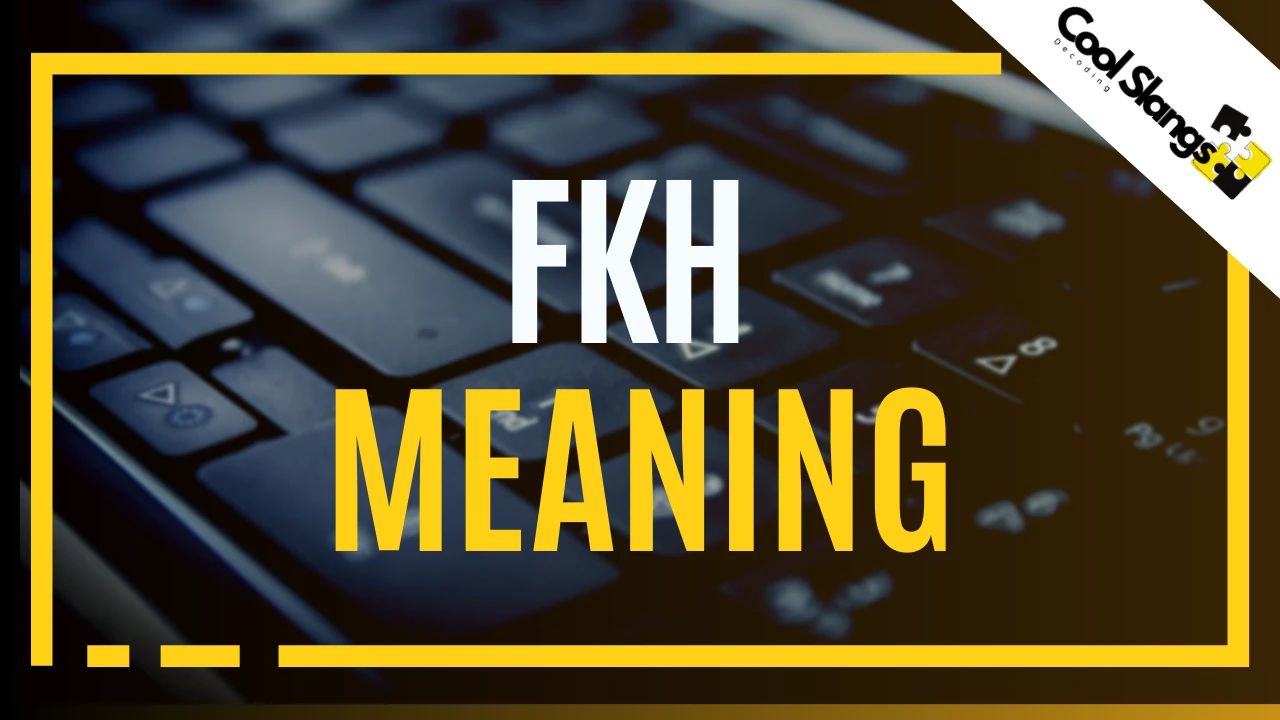What Does Fkh Mean
In the vast cosmos of digital communication, acronyms traverse the ether, weaving together the threads of conversation in an engaging tapestry. One such intriguing and enigmatic term that has emerged in the lexicon of online vernacular is "fkh." What does this peculiar acronym signify, and why is it gaining traction among the youth and digital denizens? Let's embark on a journey through this linguistic labyrinth, unraveling the complexities and the artistic allure imbued within "fkh."

To comprehend the essence of "fkh," we must dissect its components, its history, and its contextual usage in various social media ecosystems. At first glance, this three-letter abbreviation may appear inconspicuous—just another entry in the ever-growing encyclopedia of online slang. Yet, it possesses a vitality and relevance that resonate profoundly within today's communication culture. Like an obscure piece of art that captivates the viewer upon closer inspection, "fkh" reveals layers of meaning that warrant exploration.
The acronym "fkh" often symbolizes the phrase "f*** 'em haters," a bold declaration that exemplifies defiance and resilience against critics. It is akin to an iron shield forged through adversity, radiating an energetic charge that empowers individuals to rise above negativity and judgment. In a world where the spotlight can feel blinding and opinions can rain down like confetti, "fkh" serves as an anthem of self-affirmation and a declaration of independence from the naysayers of the virtual realm.
Its emergence is analogous to the blooming of a wildflower in a desolate wasteland—beautiful, unexpected, and fiercely determined to thrive. Young people who wield "fkh" in their conversations encapsulate a decisive shift towards a more unapologetic self-expression. Gone are the days of silent suffering under the weight of judgment; instead, "fkh" invites a chorus of voices to stand tall and proclaim their uniqueness, regardless of external disruptions.
Social media platforms such as Instagram, TikTok, and Twitter provide fertile ground for "fkh" to flourish. It acts as an emotional catalyst, drawing together communities formed around shared experiences of judgment and empowerment. Hashtags flourish alongside "fkh," cultivating an ecosystem of solidarity among those who resonate with the message of defiance. This camaraderie, rooted in mutual understanding, reinforces the acronym’s significance beyond mere letters—it transforms it into a modern rallying cry.
For many, the essence of "fkh" can be likened to a phoenix rising from the ashes. It symbolically embodies the transformation that takes place when individuals confront adversity and reemerge stronger. In moments where self-doubt and fear linger like dark clouds, invoking "fkh" acts as a beacon of light—reminding one to embrace their identity and reject the constraints imposed by others.
Consider, for instance, a scenario in which a creative individual feels shackled by the critical assessments of their work. Instead of folding under pressure, invoking "fkh" offers a liberating perspective: the realization that one’s artistic vision should not be diluted by the opinions of others. The audacity to create, to express, to be unapologetically unique—this is the gift "fkh" bestows upon its users.
The inclusion of "fkh" in everyday dialogue showcases the dynamic nature of language in the digital age. Language, much like a river, flows and adapts with its surroundings. It ebbs and flows, creating eddies of meanings and implications as it meets the whims of modern communication. This adaptability enhances our understanding of cultural movements, attitudes, and generational values—especially when framed through the prism of "fkh."
Interestingly, the profound impact of "fkh" reaches beyond individual experiences. It nudges society toward scrutinizing the culture of criticism that often breeds a notion of perfectionism anchored in fear. In this regard, "fkh" contributes not only to the empowerment of individuals but also to a broader cultural reformation that advocates for kindness, acceptance, and a recognition of the artistry embedded in imperfections. It beckons us to reframe our perspectives on creativity and self-worth, encouraging a nurturing mindset instead of one riddled with judgment.
As this acronym gains momentum, it is vital to explore its implications for future dialogues. In a society saturated with the cacophony of opinions, "fkh" surfaces as a rallying point for authenticity and self-respect. Could it be that what began as a simple acronym transforms into a philosophy—a way of life that champions the idea that self-acceptance triumphs over external validation?
In examining this linguistic phenomenon, we discover that language is a living organism, breathing and evolving with each ephemeral moment. "Fkh," armed with its vitality, encapsulates a revolution sparked by the audacity to embrace one’s truth. Its wildflower existence thrives amidst the concrete realities of online discourse, propagating a culture that prioritizes authenticity over conformity.
As we peel back the layers of this acronym, we reveal not only its meaning but also the myriad of emotions and ideas it encapsulates. "Fkh" invites us to forge our paths, to reclaim our narratives, and to stand defiantly in the face of criticism. Such is the allure of language in our digital epoch—fascinating, evolving, and infinitely expressive. In essence, "fkh" is more than just a phrase; it is an invitation to revel in the freedom of being unabashedly oneself. And so, through these letters, we are reminded, above all else, to let our voices rise above the clamor. Embrace your uniqueness, declare your truth, and carry the banner of "fkh" with pride.
Post a Comment